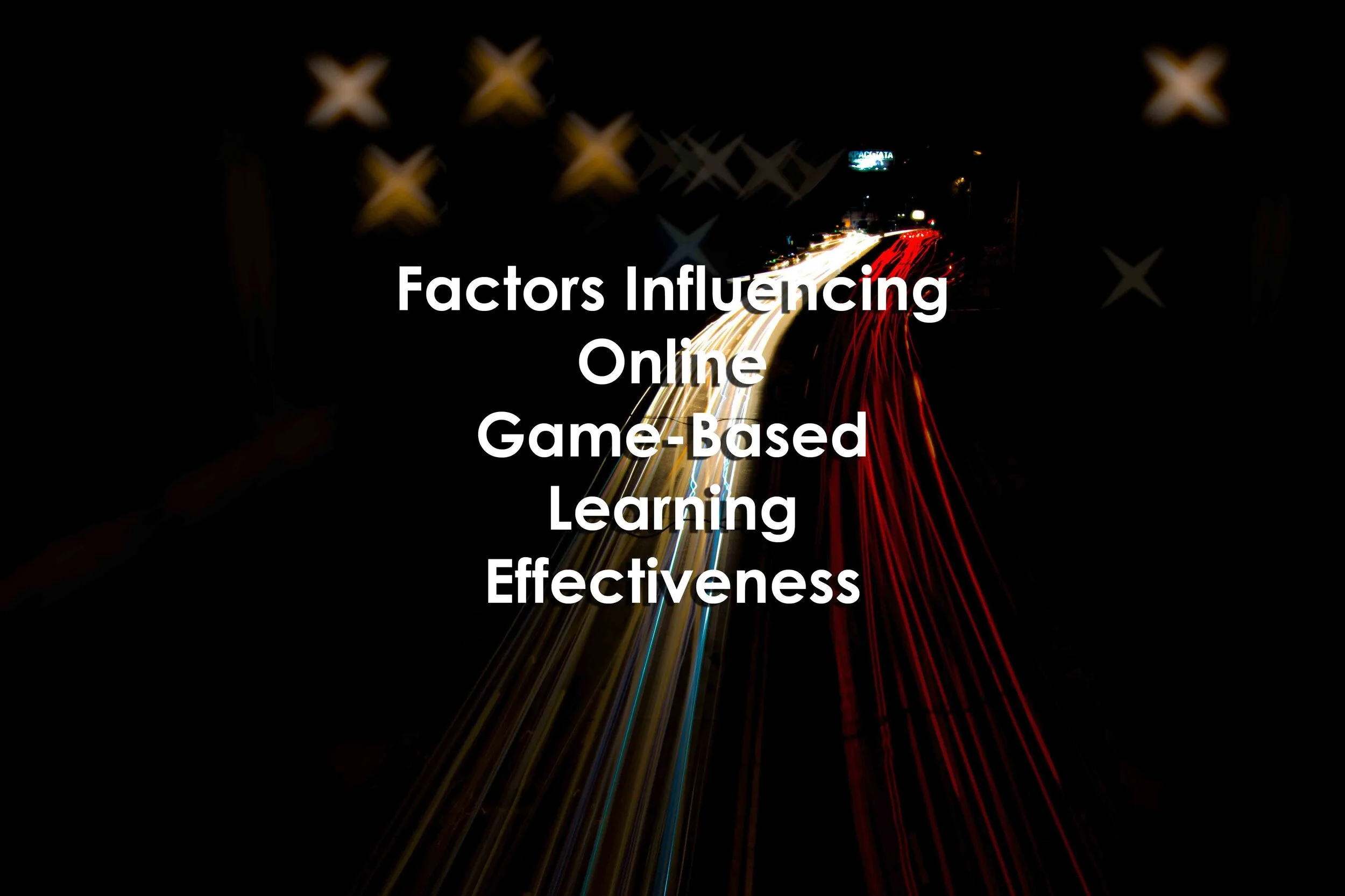Factors Influencing Online Game-Based Learning Effectiveness
Factors Influencing Online Game-Based Learning Effectiveness
Factors Influencing Online Game-Based Learning Effectiveness
Segomotso Mosiane, Irwin Brown
Abstract
“There is a general consensus that games are effective as learning tools. There is however, a lack of knowledge regarding what makes online games effective as earning tools. The purpose of this study is therefore to answer the question: What are the factors influencing online game-based learning effectiveness? The aim of this paper is to develop a conceptual framework that reflects the factors influencing online game- based learning effectiveness. The conceptual frameworkcombines concepts from the Information Systems Success Model, Task-Technology Fit Model and Flow theory. The study used a quantitative method. Data was collected using an online instrument. The study used 134 respondents from mainly the United Kingdom, United States and South Africa. The model was validated using confirmatory factor analysis and tested using Smart-PLS to assess path coefficients. The identified factors influencing Knowledge Improvement, the key measure chosen for learning effectiveness with online game-based learning, are Game-Task Fit, Flow (where Flow consists of dimensions of Goal Orientation/Feedback and Concentration) and Perceived Usefulness. The utilitarian factors of Game-Task Fit and Perceived Usefulness have a stronger effect on Knowledge Improvement than Flow. On the other hand Flow was the only one of these three variables to have an influence on intensity and frequency of game use, suggesting a hedonic motivation for intense and frequent game usage. These increases in game usage do not necessarily translate into Knowledge Improvement suggesting that the link between game use and Knowledge Improvement may not be a simple linear relationship. Game Quality influences Game-Task Fit, while Information Quality influences both Flow and Game-Task Fit.”
Reference
Mosiane, S., & Brown, I. (2020). Factors Influencing Online Game-Based Learning Effectiveness. The Electronic Journal of Information Systems Evaluation, 23(1).
Keywords:
Game-Based Learning, Effectiveness, IS Success, Task-Technology Fit, Flow

